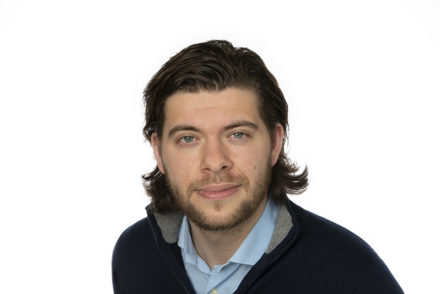Anna Berti Suman, a citizen science pioneer, prepares for digital PhD defense
When it comes to environmental matters, information is power. And in democratic countries, that power rests in the hands of everyone with a smartphone or even just basic senses such as smell and sight. That’s what Anna Berti Suman, whose PhD defense will be livestreamed this Friday, argues in her pioneering dissertation on citizen science and its potential to change environmental policies.

Anna Berti Suman
Anna Berti Suman, an environmental lawyer who swapped the Ecuadorian Amazon rainforest for the Tilburg University campus three and a half years ago, has long dreamed of defending her PhD thesis on a form of citizen science called “citizen sensing”. But instead of standing in front of an audience of colleagues, friends and family in the auditorium, she will obtain her doctorate degree at home in front of her laptop.
As she prepares for her digital PhD defense, Univers called her to find out more about her pioneering research on citizen sensing, and its potential to challenge – or even change – the way environmental decisions are made.
Your PhD ceremony will be livestreamed on YouTube because of the pandemic. How do you feel about defending your dissertation virtually from your living room?
“I have mixed feelings about it, especially because my family lives in Italy. My partner is driving all the way from Milan to Tilburg just to make it to my virtual defense. Sadly, my family in Rome won’t be able to attend the ceremony in person. But the flip side is that anyone can be present at my defense digitally. All of my research participants, even in Japan, can now join without boarding a plane.”
Your thesis is about citizen sensing and its potential to contribute to environmental decision-making. What exactly is citizen sensing?
“In layman’s terms, it’s a form of environmental monitoring that is run and deployed by citizens who are not acting in an expert role. It could be me, you or anyone else who feels there is a problem and wants to monitor this problem without relying on the authorities.
“For example, I could use my smartphone to monitor air pollution in my neighborhood. Or I could choose not to rely on the RIVM website for information about the coronavirus spread in the Netherlands, but gather information myself instead.”
So anyone with a smartphone can become a sensing citizen?
“Yes. In fact, you don’t even need a smartphone. In citizen sensing projects, people often use devices that can measure air pollution, noise or other environmental data. But you can also simply use your own perception – if you smell there’s a bad odor, for example, you can monitor and report that odor just by using your senses.”
Why would someone participate in citizen sensing initiatives?
“Distrust of official information is an important reason. Or, if official information is lacking, citizens may just want to fill gaps in available environmental data. After the Fukushima nuclear disaster, reliable radiation information was unavailable. A few citizens started an initiative to measure radiation levels, Safecast, which has now grown into an international citizen sensing network. That’s a great example of how citizens can gather and share information on environmental health risks.”
From monitoring bee populations to tracking plastic waste, citizen science projects are springing up around the world. Is research on citizen science also on the rise?
“It is, but most studies focus on the potential advantages for citizens. In my dissertation, I’ve taken a somewhat different approach by looking at the potential impact of the practice on governments’ decisions. Especially in crisis scenarios, citizen sensing can strongly contribute to environmental policy making and policy change.”
What about the crisis the world is currently facing? Can citizen sensing also help combat the coronavirus?
“Yes, I believe so. Accurate information about the virus and its spread isn’t always available. Since the virus outbreak, we’ve seen a surge in citizen initiatives. Such initiatives can complement information from governmental sources, or even provide missing information.”
Citizen sensing initiatives often have a tinge of activism to them. Is that why you – an environmental lawyer with an activist track record – chose citizen sensing as the topic of your PhD thesis?
“I have a super deep drive for environmental protection. Ever since I was really young, I was always spending time in the garden or studying for my exams sitting under a tree. Later, when I was working as an environmental lawyer in Ecuador, I realized that local communities often don’t have access to ways that would allow them to prove that their environment is being polluted.
“For those communities, citizen sensing projects can be a form of self-empowerment – it helps them reclaim agency over environmental issues that sometimes seem out of their control. That’s when I became really fascinated with citizen sensing and its potential.”
Would you encourage students to become sensing citizens, too?
“I would! One of my more puzzling findings is that most people who participate in citizen sensing projects are older adults. They are often tech enthusiasts in their fifties or sixties, but rarely young activists. In addition to youngsters, women are also a minority in the citizen sensing community. That’s a pity. Personally, I would love to see more young people and more women get involved.”
Anna Berti Suman will defend her PhD thesis online on Friday 8 May at 10.00 AM. You can join the ceremony here.






